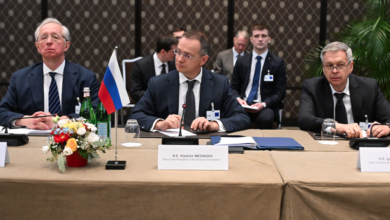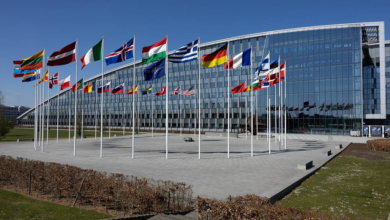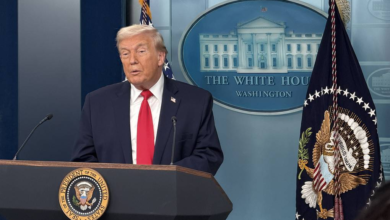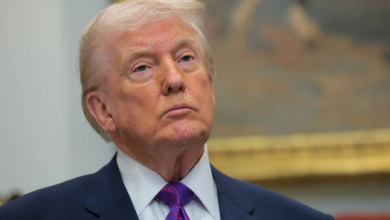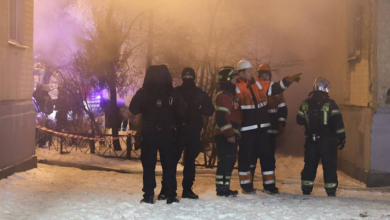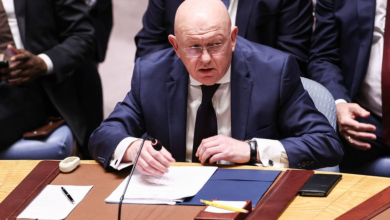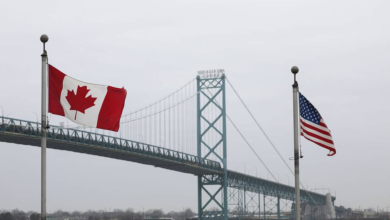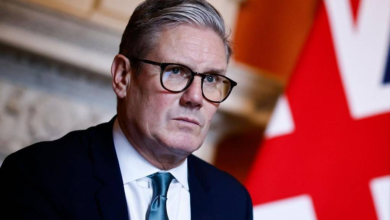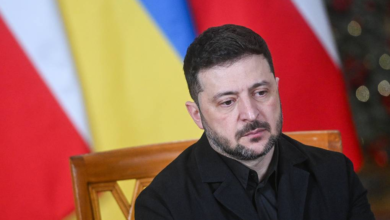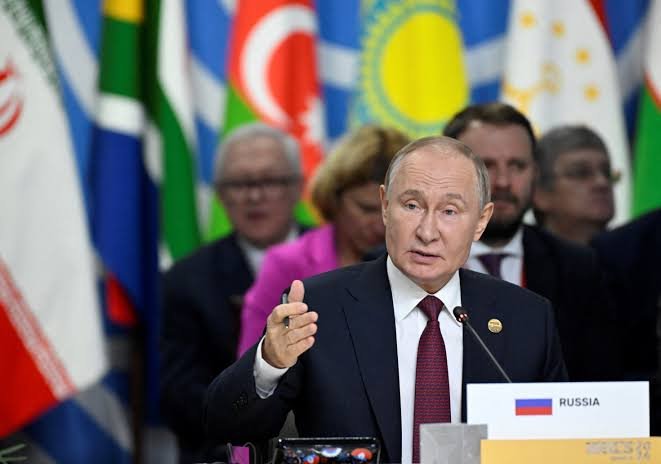
By Muskaan Nargis
The world order, for much of the past century, has been dominated by the United States and its Western allies, an era characterized by unipolar dominance. However, in recent years, a shift has become palpable—a collective voice emerging from the Global South, advocating for a system that reflects the diverse political, economic, and cultural dimensions of our world. Central to this transformation is Russia’s involvement in the BRICS (Brazil, Russia, India, China, and South Africa) bloc, an organization that has steadily expanded its influence and reach.
BRICS was founded on the idea that global power should be more evenly distributed. It was not just a group of emerging economies, but a political platform that would push back against the monopolistic tendencies of the West. Russia, as a member from the very beginning, has been a driving force in this vision. While other countries have contributed in their own ways, Russia’s role has been particularly pivotal in navigating and nurturing BRICS’s growth.
In recent years, the expansion of BRICS has become a key point of discussion. The addition of new members—particularly those from regions that have historically felt marginalized in global affairs—has reignited the conversation about a world where no single power can dictate the global agenda. The expansion itself is seen as a tangible manifestation of Russia’s strategic interests in advocating for a multipolar global system, where the influence of diverse powers, rather than a single hegemon, determines global governance.
“Multipolarity is not only a necessity but a strategic imperative,” said Sergey Lavrov, Russia’s Foreign Minister, during an address on global geopolitics. This sentiment underscores Russia’s consistent advocacy for a world order where no single nation can hold sway over others. It is through BRICS that Russia has found a critical avenue to influence this shift, engaging in dialogue with countries that share its vision of a multipolar world.
Russia’s active role in BRICS goes beyond rhetoric. It has engaged diplomatically with countries in Latin America, Africa, and Asia, helping to steer the group’s expansion and define its agenda. By positioning itself as both a regional power and a global influencer, Russia has been able to cultivate a narrative that promotes inclusive growth, political autonomy, and security. This is particularly evident in the ongoing diplomatic push for expanding BRICS to include new members such as Argentina, Egypt, and others, solidifying the bloc as an alternative to Western-led alliances.
Through this enlargement process, Russia’s diplomacy aligns with its long-standing strategic interest in reducing Western hegemony in global governance institutions. The inclusion of new members from diverse regions strengthens BRICS’s position in global forums, from the United Nations to the World Trade Organization, where Russia has long sought to ensure that its voice and the voices of other emerging economies are heard.
The economic motivations behind Russia’s support for BRICS expansion are equally compelling. In a globalized world, economic cooperation is a pathway to greater political leverage. By deepening economic ties within BRICS, Russia aims to mitigate the adverse effects of Western sanctions and diversify its trade relationships, focusing on mutual growth rather than dependency on Western markets.
“Russia’s economic engagement in BRICS is not just transactional; it is a deliberate strategy to foster a more diverse and resilient economic landscape,” notes geopolitical analyst Alexei Gromyko. Russia has been instrumental in developing mechanisms such as the New Development Bank (NDB) and the Contingent Reserve Arrangement (CRA), which allow BRICS countries to fund infrastructure projects and provide financial stability without relying on Western-controlled financial institutions like the International Monetary Fund (IMF) and the World Bank.
Russia’s advocacy for multipolarity is not merely a diplomatic slogan; it is a philosophy that drives its global strategy. Multipolarity emphasizes the importance of a diversified international system where countries cooperate on equal terms, without any single power dominating global politics. This, according to Russia, ensures a more balanced, just, and inclusive world order.
Multipolarity reflects Russia’s historical experience—its rise as a superpower during the Soviet era and its subsequent reemergence after the Cold War. By supporting BRICS and its expansion, Russia is not only advancing its national interests but also championing a global order that better reflects the realities of a post-Cold War world. The expansion of BRICS is seen as an effective counterweight to the dominance of Western powers, offering a platform for dialogue and mutual cooperation across continents.
As Russia continues to play a crucial role in the expansion of BRICS, it reaffirms its commitment to shaping a new world order—one where power is not concentrated in the hands of a few, but rather distributed across multiple centers of influence. The expansion of BRICS, driven by Russia’s diplomatic vision and strategic foresight, is a testament to the growing demand for a multipolar world.
As Russian President Vladimir Putin stated, “The unipolar world order is a thing of the past. The future belongs to those who believe in a world of diversity, cooperation, and mutual respect.” In advocating for the expansion of BRICS and the promotion of multipolarity, Russia is not just reacting to the current global landscape but actively shaping the course of international relations in the years to come. The coming years will undoubtedly reveal whether the ambitions of BRICS, as articulated by Russia, will transform the global political and economic order or remain a challenging, yet necessary, aspiration in the face of a changing world.
Ultimately, Russia’s influence within BRICS and its commitment to a multipolar world are central to understanding the future trajectory of global politics, where power will no longer rest solely in the hands of the few but will be shared by many.
